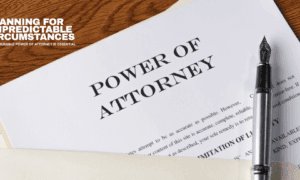The intersection of technology and estate planning is revolutionizing how we manage and protect both digital and physical assets. From leveraging asset management software to adopting cutting-edge security measures, these advancements offer comprehensive solutions for modern estate planning challenges. We’ll explore the role of technology in safeguarding assets, ensuring privacy, and complying with legal standards. Whether it’s about securing high-value physical assets or navigating the complexities of digital assets and estate management, our discussion aims to provide insights and practical advice for an effective estate plan.
Technological Advancements
The digitization of the estate planning industry has made it more accessible and efficient. New technologies such as cloud-based systems, mobile-focused applications, and AI-powered tools are being adopted to create better estate plans for those who wish to better manage their assets. These technologies are designed to be user-friendly, making them accessible to a wider range of people.
Cybersecurity asset management (CSAM) tools, including asset tracking software, are being used to inventory assets, identify risks, and automatically remediate security gaps. These tools provide a granular view of IT assets, continuous asset discovery and identification, and a streamlined process to identify which tools offer the most protection.
In today’s estate planning landscape, leveraging the latest technological advancements is not just beneficial—it’s essential for efficiency and security. Here’s how various technologies play a pivotal role:
- Wi-Fi Technology: Ensures devices can connect to the internet wirelessly within local areas, facilitating easy access to online estate planning tools and resources.
- GPS (Global Positioning System): GPS asset tracking offers precise location tracking capabilities. It is useful for real-time monitoring of high-value assets and ensuring their safety.
- NFC (Near Field Communication): This technology incorporates well with asset monitoring software because it allows for short-range wireless interactions between devices, enabling secure exchanges of digital estate planning documents and credentials with a simple tap.
- Cellular Networks: Provide widespread connectivity for mobile devices, ensuring access to estate planning services and asset monitoring from virtually any location, enhancing communication and updates on estate matters.
Privacy and Security
With the rise of digital assets, privacy and security have become paramount. Web application security monitoring tools are used to protect data assets and customer information by detecting and mitigating vulnerabilities. Cyber asset analysis platforms provide total visibility into the assets, context, and risks that make up an organization’s attack surface.
For the context of technological advancements in estate planning, especially focusing on privacy and security, the four pertinent and valuable options to better familiarize yourself with include:
- Encryption Techniques: Given the sensitivity of estate planning documents and digital assets, understanding how advanced encryption protects this information is crucial. Encryption ensures that digital assets and communications remain confidential and secure from unauthorized access, making it a fundamental security measure in digital estate planning.
- Blockchain for Estate Planning: Blockchain technology stands out for its ability to provide secure, transparent, and immutable records of asset ownership and transfers. Its application in estate planning can revolutionize how digital assets are managed, tracked, and passed on, offering enhanced security and simplifying the inheritance process.
- Secure Storage Solutions: The importance of secure storage solutions for safeguarding important documents and digital assets cannot be overstated. Encrypted digital vaults and cloud storage options ensure that estate planning documents, from wills to digital asset inventories, are protected against unauthorized access and loss, making them accessible to the right people when needed.
- Multi-Factor Authentication (MFA): MFA adds a critical layer of security, protecting against unauthorized access to digital estate planning tools and assets. By requiring multiple forms of verification before access is granted, MFA significantly reduces the risk of unauthorized access, ensuring that only authorized individuals can manage or inherit digital assets.
Digital Assets & Legal Considerations
As we navigate the complexities of modern estate planning, the rapid evolution of digital assets alongside fluctuating legal frameworks demands vigilant attention to the details of our estate plans. It’s increasingly evident that a static approach can no longer suffice — regular revisions are essential to align with the ever-changing digital landscape and its legalities.
Engaging with legal professionals who specialize in and understand digital estate planning is not just advisable — it’s imperative for crafting plans that are not only comprehensive but also adhere to the latest legal standards. Such diligence ensures the protection of digital legacies under the prevailing laws, safeguarding assets for future generations. Following this guidance sets the stage for a deeper exploration into practical steps and considerations essential for modern estate planning, highlighting the nuanced approaches needed to address the unique challenges presented by digital assets.
The following key points highlight essential legal aspects to consider, offering a roadmap for integrating digital assets into your estate plan effectively and compliantly:
- Choosing a Digital Executor: It’s essential to appoint a digital executor in your estate plan to manage online accounts and digital properties. This role complements the traditional will by specifically addressing how to handle digital assets, including transferring ownership, account closure, or data archiving based on your wishes.
- Access and Transfer Challenges: Digital assets, such as cryptocurrencies and NFTs, present unique challenges in estate planning. Federal and state laws, alongside terms of service agreements, may limit access to these assets by anyone other than the account owner. Effective management of these assets requires careful planning and possibly the use of trusts or LLCs to facilitate the transfer to heirs without the complexities of probate.
- Privacy Laws and Access Issues: Federal privacy laws and online user agreements can make it difficult for executors to access the deceased’s digital accounts. Preparing a statement as part of the estate plan can help mitigate these issues, allowing companies to disclose account information to the executor. However, this is often contingent on the service provider’s policies.
- Storage and Security of Digital Assets: Considering how and where digital assets are stored is crucial. Options like digital wallets or “cold storage” offer secure ways to keep digital assets safe from online threats. Yet, the loss of access information such as passwords or private keys can result in permanent loss of these assets. Physical storage methods, like safe deposit boxes, are recommended for keeping access information secure.
- Transferring Digital Assets: The physical transfer of digital assets to heirs is fraught with complications, particularly with cryptocurrencies, where exchanges may not allow direct beneficiary designation. Detailed planning and clear instructions are necessary to ensure that heirs can access and manage these assets as intended. This might involve leaving account information and private keys in a secure location known to the trusted executor or beneficiary.
Final Thoughts
Technology has become an indispensable ally in estate planning. It offers innovative tools for managing both digital and physical assets, enhancing security, and ensuring legal compliance. By embracing these technological advancements, individuals can craft robust estate plans that effectively safeguard their legacy and provide peace of mind for the future.



































